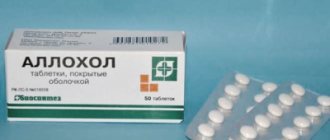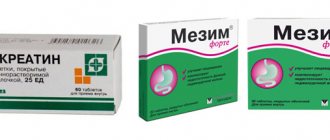What should you gargle with?
With the help of rinses, you can soothe inflamed mucous membranes, get rid of dryness and pain in the throat, and also significantly reduce the intensity of dry cough attacks.
To achieve maximum effect, the gargling procedure must be performed at least 4-5 times a day (the optimal frequency is every 3 hours). This should be done after a meal.
To cure a dry cough, a pregnant woman can gargle with one of the following decoctions:
- Mix calendula officinalis (flowers), clary sage (herb) and eucalyptus (herb) in equal parts. Pour a full tablespoon of the healing mixture into a glass of boiling water. Place the container with the drug in a water bath and boil for 10 minutes. Then strain the resulting broth and cool slightly. It is now ready for rinsing. Please note that this product cannot be stored for a long time. It should be used within 4 hours.
- Mix angustifolia fireweed (leaves), marshmallow (root), meadow clover (flowers), chamomile (flowers), peppermint (leaves), coltsfoot (herb), raspberries (leaves) and pine buds in equal proportions . Grind the mixture. Pour one tablespoon of the healing mixture into one glass of boiling water. Place the container with the drug in a water bath and boil for 15 minutes. Then pour the resulting broth into a thermos and leave for 2 hours, then strain. Now it can be used for rinsing.
- Take 0.5 liters of warm boiled water and add a full tablespoon of natural apple cider vinegar to it. You need to gargle with this solution at 2-hour intervals.
And the simplest recipe: dissolve baking soda (half a teaspoon) in a glass of water at room temperature.
Physiotherapy – treatment at home and in medical institutions
The safest way to treat cough while carrying a baby is physical therapy, since it is a non-drug method. This method is most effective for dry cough.
However, some methods still cannot be used.
- radiation treatment;
- banks;
- mustard plasters;
- foot baths;
- electrotherapy;
- hot baths.
However, expectant mothers should not once again visit medical institutions where a lot of patients are concentrated. Moreover, a number of physiotherapy procedures can be successfully carried out at home. Almost every forum where treatment problems for pregnant women are discussed contains advice on how to carry out inhalations or how to treat a throat with gargles.
Inhalations
To carry out inhalation, you can use a nebulizer or use a very ordinary teapot. The vapors are inhaled through the spout of the kettle, onto which a funnel twisted from cardboard is placed. To carry out inhalation, you need to adhere to some important rules:
- body temperature should not be elevated;
- the solution for inhalation should have a temperature of 30 to 40 degrees;
- the duration of inhalation is about 10 minutes, such “sessions” need to be carried out 3-6 times a day;
- After the session you need to not talk or eat anything for about half an hour.
The following mixtures can be used as solutions for inhalation:
- Dilute 50 g of baking soda in one liter of boiling water, then cool the mixture slightly.
- Dilute 10 g of honey in one glass of warm water. Whether honey can be used during pregnancy in any medicinal product depends on whether the woman has had allergic reactions to this product.
- Dissolve 10 g of pre-chopped garlic and eucalyptus leaves in one liter of boiling water. After this, you need to cool the mixture a little.
- Dilute 20 g of sage in one glass of boiling water and cool slightly.
Gargling
If a pregnant woman has a sore throat or just a sore throat, gargling is an excellent treatment method in this case.
You may be interested in: Fever, rash on the face and cough in a child
You need to prepare this product before you start rinsing. When the liquid becomes homogeneous, it should be cooled. You need to gargle up to 8 times a day; one glass of the prepared solution is enough for one gargle. Rinse after meals.
Expectant mothers can use the following rinsing solutions:
- An infusion of 10 g of chamomile flowers poured into one glass of boiling water.
- A solution of half a teaspoon of baking soda in one glass of warm water.
- An infusion of 10 g of plantain leaves poured into a glass of boiling water.
- An infusion of 10 g of linden leaves poured into a glass of boiling water.
Test: Does your lifestyle cause lung disease?
Time limit:
out of 20 tasks completed
Questions:
- 1
- 2
- 3
- 4
- 5
- 6
- 7
- 8
- 9
- 10
- 11
- 12
- 13
- 14
- 15
- 16
- 17
- 18
- 19
- 20
Information
Since almost all of us live in cities with very unfavorable health conditions, and in addition to this we lead an unhealthy lifestyle, this topic is very relevant at the moment. We perform many actions or, on the contrary, we remain inactive, without thinking at all about the consequences for our body. Our life is in breathing, without it we cannot live even a few minutes. This test will help you determine whether your lifestyle can provoke lung diseases, and will also help you think about your respiratory system health and correct your mistakes.
You have already taken the test before. You can't start it again.
The test is loading...
You must log in or register in order to begin the test.
You must complete the following tests to start this one:
results
Time is over
You are a fairly active person who cares and thinks about your respiratory system and health in general, continue to play sports, lead a healthy lifestyle and your body will delight you throughout your life
But do not forget to undergo examinations on time, maintain your immunity, this is very important, do not overcool, avoid severe physical and strong emotional overload. Try to minimize contact with sick people; if forced contact, do not forget about protective equipment (mask, washing your hands and face, clearing your respiratory tract).
You are at risk, you should think about your lifestyle and start taking care of yourself
Physical education is required, or even better, start playing sports, choose the sport that you like most and turn it into a hobby (dancing, cycling, gym, or just try to walk more). Do not forget to treat colds and flu promptly, they can lead to complications in the lungs. Be sure to work on your immunity, strengthen yourself, and be in nature and fresh air as often as possible. Do not forget to undergo scheduled annual examinations; it is much easier to treat lung diseases in the initial stages than in advanced stages. Avoid emotional and physical overload; if possible, eliminate or minimize smoking or contact with smokers.
You are completely irresponsible about your health, thereby destroying the functioning of your lungs and bronchi, have pity on them! If you want to live a long time, you need to radically change your entire attitude towards your body. First of all, get examined by specialists such as a therapist and a pulmonologist; you need to take radical measures, otherwise everything may end badly for you. Follow all the doctors’ recommendations, radically change your life, perhaps you should change your job or even your place of residence, completely eliminate smoking and alcohol from your life, and reduce contact with people who have such bad habits to a minimum, toughen up, strengthen your immunity as much as possible spend more time in the fresh air. Avoid emotional and physical overload. Completely eliminate all aggressive products from everyday use and replace them with natural, natural remedies. Do not forget to do wet cleaning and ventilation of the room at home.
- 1
- 2
- 3
- 4
- 5
- 6
- 7
- 8
- 9
- 10
- 11
- 12
- 13
- 14
- 15
- 16
- 17
- 18
- 19
- 20
- With answer
- With a viewing mark
Precautionary measures
In order not to harm your health during pregnancy, you need to carefully select expectorant medications. You should not self-prescribe any medications or ignore your cough. If any unpleasant symptoms appear, you should consult a doctor. He will prescribe medications that will be effective in each specific case.
During pregnancy, before using any medication, it is necessary to check its tolerability. Therefore, after the first dose of the drug, you should wait several hours and observe the body’s reaction. If all is well, treatment continues as before.
Related video: An excellent remedy for dry cough
Cough expectorant for adults
All drugs in this group are addressed to this category of patients. Restrictions may be in the presence of known intolerance to one or more components of specific drugs or herbal remedies, or contraindications due to the patient’s concomitant diseases. Expectorants, especially medicinal ones, are recommended to be taken only as prescribed by a doctor, who will take into account the pathogenesis of the disease, the patient’s condition and the nature of the cough.
Particular caution should be exercised when administering expectorant therapy to pregnant and lactating women. It is not recommended to take any medications during this period.
The use of expectorants during pregnancy in the 1st trimester is contraindicated in the instructions for most drugs - ACC, Carbocysteine, Lazolvan (Ambroxol), Bromhexine, Sinekod, in the 2nd and 3rd trimester - only for vital indications, although the embryotoxic effect of these drugs has not been identified.
The effect of the drug Erespal on the human fetus has not been sufficiently studied, however, experimental animals gave birth to cubs with a cleft palate. It is not recommended for women expecting a child.
The drugs described above are found in breast milk and are therefore not recommended for nursing mothers. If a woman needs to take any of them, breastfeeding will have to be stopped.
Plant-based preparations are not contraindicated for use during pregnancy: Herbion with plantain, Mucaltin tablets and syrup; in the second and third Trimester it is allowed to take Pertussin; only in the third - Thermopsis. However, only if the expectant mother does not have an allergy to the components of the drug, complications and the threat of miscarriage, severe early toxicosis (herbal expectorants increase the gag reflex). It is not recommended to use Gerbion syrups with ivy and primrose, Doctor Mom, Bronchicum during pregnancy. Pertussin is prohibited in the first trimester, Thermopsis is prohibited in the first and second.
During pregnancy, medicinal herbs are not contraindicated: plantain, marshmallow, thyme - for a short course and with caution. Licorice and coltsfoot are not recommended for pregnant women
It would seem easier to choose a cough expectorant during lactation. There is no longer a threat of miscarriage and toxicosis, however, the effect of herbal preparations on infants has not been studied, so manufacturers often do not recommend their use. Therefore, first of all, you need to consult a doctor. Plantain definitely has no contraindications. Coltsfoot and wild rosemary are not recommended, as well as preparations containing ethyl alcohol.
Herbalists recommend that pregnant and lactating women consume ginger, which has a pronounced antiseptic, anti-inflammatory effect and stimulates the immune system.
The safest expectorants during this period are soda, salt and honey (if there is no sensitization). And also water! Humidifying the air and drinking plenty of fluids also helps thin the mucus and works no worse than medications.
However, a pregnant woman should agree on any medication with her doctor, even the most natural and harmless one.
[], [], [], []
ethnoscience
Folk remedies will help you expectorate phlegm during pregnancy. This is facilitated by the use of medicinal herbs, the properties of which have been known to people since ancient times. But they must be used with caution, after consulting a doctor before doing so. Some herbs are very strong and can affect the fetus:
- Coltsfoot is a very popular expectorant. But it is contraindicated to use during pregnancy; the herb can cause miscarriage. The same goes for Elecampane.
- Marshmallow root is contraindicated in the initial period, then it can be used, but with caution. Not only the roots, but also the stems and seeds of the plant have healing properties. To prepare the medicine, pour 15 g of raw material into half a liter of cold water and leave for 24 hours.
- Radish juice with honey or sugar helps with coughs and has no side effects. To prepare the product, you need to wash a medium-sized radish, cut out the middle and fill the hole with sugar or honey. Leave to infuse in a warm place. The product is ready when the sugar has completely dissolved and the honey has become liquid. Drink a spoon 3 times a day.
- It is useful to use viburnum berries. They are rich in vitamins, which is very important for the body of a pregnant woman. To do this, pour a liter of boiling water over a glass of berries, boil and cool. Add 3 tablespoons of honey and drink 100 ml at a time three times a day.
- It’s good to prepare viburnum for the winter without heat treatment. To do this, sprinkle fresh viburnum berries with sugar and place tightly in a jar. This remedy is useful for the whole family, especially in winter, when there are no vitamins. It will protect a pregnant woman from colds and coughs, and replenish the lack of vitamins.
Various means can be used to cough up mucus during pregnancy. Now they are produced in sufficient quantities. But the doctor must choose them, taking into account all the risks and side effects.
What is not recommended for treating cough during pregnancy?
Almost any cough medicine used during pregnancy can, in certain trimesters, have different effects on the body.
Contraindications include:
- massage of the abdomen or lumbar back;
- compresses, decoctions or infusions using alcohol;
- folk remedies with the addition of comfrey, nettle and hemlock herbs.
Any of the above plants are poisonous and can cause bleeding and also increase the muscle tone of the uterus, which can lead to miscarriage.
Cupping procedures, citrus fruits, honey and regular use of herbal teas are also contraindicated. An incorrectly selected dosage of these products can cause an allergic reaction.
In the first trimester
The child is going through a formative stage. Any harmful effects from external products can negatively affect the supply of oxygen and nutrients to the baby. During this period, it is not recommended to use folk remedies using a large number of herbs or other components.
For therapy in the first trimester, simple decoction recipes are well suited:
- honey with hot milk;
- lime tea;
- brewed ginger with honey and lemon.
Easy to prepare, but effective to use recipes help to quickly relieve a cough without harming the child.
In the second trimester
This period is considered the calmest for mother and child. Its duration is from the 4th to the 7th month. During the second trimester, regular changes occur in the mother's body that cause a decrease in immune defense.
At this stage, the consumption of allergenic foods, such as honey, citrus fruits, and nuts, should be strictly dosed. Before using an allergenic component, you must consult your doctor and obtain permission for its use.
In the third trimester
The period from 28 to 40 weeks of pregnancy is characterized for women by regular fatigue, weakened immunity and preparation of the child for birth. Allergic foods are not recommended at this time.
When choosing herbs for treatment, first study their properties. Plants that increase muscle tone can cause contractions. Therapy with folk remedies using such herbs will lead to premature birth.
You can use honey, citrus fruits and herbs in the third trimester, but only if you consult a doctor and follow the prescribed dosage.
General information
If a person coughs a lot, this symptom significantly worsens his life. During pregnancy , coughing causes the expectant mother great discomfort. Since immunity significantly weakens during pregnancy, a woman can catch a cold at any stage. Sometimes even short contact with a patient or slight hypothermia can trigger a cold or ARVI .
However, if we talk about the dangers of coughing during pregnancy, it should be noted that it is only a symptom of the disease, and can be evidence of a variety of ailments. This is a reflex reaction aimed at clearing the airways from bronchial secretions. Consequently, it is not the symptom itself that requires treatment, but the disease that provoked it. Sometimes a person coughs due to an allergic reaction that occurs to external irritants.
You may be interested in: Redness in the esophagus, cough
Pregnancy and cough - this combination can be a problem, because during the period of bearing a baby, especially in the early stages, a woman should not take effective expectorants or cough suppressants. By the way, most herbal remedies should not be taken during pregnancy. Therefore, those expectant mothers who prefer folk remedies when coughing so as not to harm the child also often risk harming the baby. After all, such drugs also have side effects.
Children's cough syrup should not be used either. Despite the fact that such medications seem safe at first glance, because they are given to children under 3 years of age, in fact, the drug approved for children can negatively affect the fetus.
Therefore, in order to protect the health of mother and baby, medications allowed for pregnant women should be prescribed by a doctor, as well as the regimen for taking them.
A special approach to the treatment of sputum during pregnancy
Intense coughing attacks with the presence of acute bronchitis are treated with expectorants such as Bromhexine, Ambrobene, Ambroxol. Their use is permitted only as a last resort, when weaker drugs do not have the desired therapeutic effect and the risk to the mother’s health is much higher than the prospect of possible harm to the child. Pregnant women can take these mucolytic medications only if the fetus is already at 6-9 months of development.
These expectorants should be used only in the form of syrups. The tablet form of the medication is prohibited for pregnant women. During the entire period of treatment for bronchitis or a cold, a woman should be observed by a doctor, who, in turn, monitors the baby’s health condition. It is necessary to avoid medications containing a substance such as codeine. It has a negative effect on the child’s central nervous system and, in its pharmacological properties, resembles low concentration morphine.
Pregnant women who are faced with a cough that has developed as a result of pneumonia and other particularly severe forms of respiratory disease are allowed to use expectorants: Oxeladin, Dastosin, Sinekod. These are potent cough medicines and are prescribed only for a short course of no more than 5 days. In this case, pregnancy should occur already in the last trimester. At earlier stages, the baby’s respiratory system may be suppressed and the risk of defective lung development increases.
In extreme cases, treatment of cough during pregnancy can be performed with antibiotics such as:
- Cefpir;
- Ampiox;
- Roxithromycin;
- Augmentin;
- Cefotaxime;
- Azithromycin;
- Amoxilav;
- Clarithromycin.
All of them can be used when the pregnancy has reached 7-9 months, the woman is suffering from severe infectious pneumonia with damage to the bronchi and alveoli. In this case, the doctor may decide to use these antibacterial drugs to cure cough, relieve inflammation, intoxication of the body and achieve an expectorant effect on the respiratory system. After all, all the swelling and accumulation of mucus that occurs in the lungs have no less negative impact on the child’s health than the active components of potent antibiotics.
In the first trimester
The first trimester is the time up to 12 weeks during which the baby's vital organs are formed. During this period, the appearance of a cough is especially dangerous, since the placenta has not yet fully formed, and it cannot protect the baby from harmful substances, viruses and bacteria.
At this time, taking products of synthetic origin is strictly prohibited. The cough will have to be treated with a limited amount of medications.
Due to the fact that there is a risk of introducing some changes into the process of fetal formation, medications are prescribed in minimal dosages, their list is limited, and their effectiveness is poorly expressed. This means that treatment will take a long time.
So, what drugs can be prescribed to a woman during pregnancy in the 1st trimester:
- Eucabal—Essentially an extract of plantain and thyme, it is available in the form of a suspension; hypersensitivity is listed among the contraindications. The drug is taken over a long period of time, it can cause an allergic reaction.
Marshmallow root syrup – contains plant mucus, they cover the mucous membranes, reduce their irritation and stop inflammatory processes. A good remedy for wet and dry coughs. The drug has one contraindication: individual intolerance, prescribed during pregnancy. But it can cause allergies.
Mucaltin - contains marshmallow root and extracts of other plants. The tablets are dissolved in water before use and the resulting drink is drunk. Mucaltin has an expectorant and moderate anti-inflammatory effect and is used in the treatment of diseases of the upper respiratory tract. Follow the link for instructions on using Mucaltin for adults.
The dangers of coughing during pregnancy
A cough is traditionally associated with a cold, but pregnant women carefully protect themselves: they take vitamins, dress warmly, and eat right. If it does not go away for up to a week, this may indicate a serious respiratory tract disease or infectious, viral or other ailments of the body. It is worth remembering that coughing during pregnancy is dangerous.
An acute cough is perceived by the body of a pregnant woman much worse than by the body of another person. Its negative impact is immediately noticeable: tension in the abdominal wall and uterus. A prolonged symptom increases the tone of the uterus, which is dangerous for premature birth and loss of the child. A dry cough affects a woman’s blood pressure, a sharp increase in which both suffer. Asphyxia sometimes causes placental abruption prematurely.
Increased uterine tone is dangerous in itself. Because of this, the rhythm of blood flow worsens, and the fetus develops a lack of nutrients and oxygen. The consequence of oxygen starvation in the baby is intrauterine hypoxia.
General consequences of cough in pregnant women:
- vomit;
- dehydration;
- loss of nutrients;
- fatigue;
- weakness;
- discomfort;
- insomnia;
- suffocation;
- pain in the posterior wall of the sternum;
- sharp pain in the larynx.
It does not appear on its own, but the provoking disease is dangerous. The symptom is a manifestation of acute respiratory viral infection (ARVI) or acute respiratory disease (ARI). Viral infections, along with a cough, cause a sore throat and nasal congestion, followed by a rise in temperature. Depending on the organ that is affected by the cold, bronchitis, tonsillitis, laryngitis, rhinitis, nasopharyngitis, and tracheitis are distinguished. Each of these diseases must be treated comprehensively, otherwise mucus accumulates in the nasopharynx and is carried by air to the lungs, where it causes inflammation and other organs. And if treated incorrectly at home, pneumonia causes coma and death.
The flu appears suddenly and immediately shows high values on the thermometer. The pregnant woman suffers from malaise, dry cough, and headaches. If the temperature is not brought down, convulsions will appear. Untreated flu turns into bronchitis, pneumonia, otitis, as well as more dangerous meningitis (inflammation of the membranes of the brain).
In addition, a cough can be a signal from the stomach, thyroid gland or ear. Sometimes it is a response to an allergen (allergic tracheitis, obstructive bronchitis). In some cases, a damaged diaphragm is to blame. Rarely is it the result of a neurotic reaction or problems in the cardiovascular system.
A cough that does not go away for a week should not cause panic. The expectant mother must remain calm, otherwise she will harm the baby with her worries. This is the other side of the disease, but also dangerous. You need to come to terms with the idea that you cannot protect your child from everything and go through pregnancy without a single illness. With proper treatment, the disease, accompanied by a cough, goes away without a trace in pregnant women. In addition, such a symptom is a natural reaction of the body, which helps remove mucus and pus from the bronchi and cleanse the larynx.
There are not enough vitamins if a patient sneezes next to the expectant mother in line to see the doctor. When you get home, you need to drink tea for prevention. You can add lemon and honey to enhance the effect. Folk remedies will help a pregnant woman where medications would only do harm: lower the temperature, eliminate a cough, relieve a headache - the main thing is to choose the right treatment regimen.
Why can’t you take regular mucolytic drugs during pregnancy?
Mucolytic drugs are strictly prohibited in the first trimester of pregnancy, when all systems and organs of the embryo are formed. At this time, such drugs can cause irreparable harm to the fetus, so their use is completely excluded. In later stages, the attending physician may authorize treatment with chemical expectorants, but only if there are extremely compelling reasons for this. At the same time, one should not exclude the possibility of a negative impact on the child in the womb.
Under no circumstances should drugs be prescribed during pregnancy that are similar in their active action to morphine, as well as centrally acting drugs that disrupt the respiratory cycle. The only acceptable drugs in official medicine for expectant mothers are only those drugs that only slightly reduce respiratory functions.
The optimal choice would be all kinds of herbal medicines. For example, any decoctions, infusions and syrups from medicinal herbs and complex mixtures: plantain, licorice root, viburnum, chamomile, lemon balm, coltsfoot, mint, etc. The only thing you should remember is that before using these products it is necessary to conduct a test for sensitivity, in order to find out in advance about the presence of possible individual intolerance to the herbal medicine.
Traditional expectorants during pregnancy
Many pharmaceutical expectorant preparations are based on the natural properties of certain plants, so safe medicinal compositions can be prepared independently.
Before using any folk recipe, be sure to consult your doctor!
The following formulations will help stimulate the removal of mucus from the respiratory system:
- The usual milk softens the throat well and has a moderate expectorant effect. Heat the product to a comfortable temperature, add a small amount of butter and honey.
- The leader among expectorants of natural origin is dried figs. Place washed dried fruits (4-5 pieces) in milk (500-600 ml). Place the dishes on the stove. Boil the figs for at least 30 minutes - the milk should acquire a characteristic brown tint. Distribute the finished product - milk - into 3-4 doses during the day. You can drink milk regardless of meals.
- Soda-based inhalations have a good effect. Bring 1 liter of water to a boil. When the temperature of the liquid drops to 70°-80°C, add 1 tsp. soda Steam inhalation is carried out at a temperature from 45°C to 55°C (depending on individual reaction). The duration of the procedure is 10-15 minutes (but not less than 5 minutes).
- No less effective are inhalations with calendula decoction (while calendula decoction itself cannot be taken).
- Warm milk with the addition of melted badger fat (1 tbsp per glass of drink). The benefit of badger fat lies not only in stimulating expectoration, but also in its pronounced anti-inflammatory effect.
- All kinds of herbal infusions are also widely popular. Linden blossom, leaves of lingonberry, string, raspberry and eucalyptus, and wild rosemary can be used as medicinal raw materials for preparing the decoction. Keep in mind that during the preparation of the medicinal product, dry raw materials are used. It can be either a multicomponent composition or a decoction based on a single plant. The decoction is prepared based on the ratio of 1 tbsp. l. raw materials per 300 ml of water. Place flowers and/or leaves of plants in a thermos and pour boiling water over them. Drink the composition as regular tea three times a day, replacing sugar with honey.
- Remove the skin from the black radish root and grate it. Strain the resulting mixture, squeezing out the cake. Add 2 tsp to the juice. liquid honey. Drink the resulting syrup three times a day at a dosage of 1 tbsp. l. This composition not only helps remove phlegm, but also reduces inflammation.
- A potato-based recipe will also help improve mucus discharge. Prepare a liquid puree based on the root vegetable. Add warm milk, a small amount of butter, and garlic passed through a press. Mix the components of the composition thoroughly. Take the product immediately before it cools down.
- Pour 50 g of washed raisins into a glass of boiling water and leave to steep under the lid for half an hour. Strain the product and add 3 tbsp. l. onion juice. Drink the composition in one dose in the evening.
- Finely chop the onion. Add a small amount of water to the resulting gruel and simmer over low heat for 30-40 minutes. Strain the product. Add honey. Apply 1 tbsp. l. after the meal.
- Inhalations with essential compounds (eucalyptus oil, tea tree ether) are possible if the expectant mother does not have an allergic reaction.
As an auxiliary element in the treatment of cough, it is worth noting diet. The food present in the daily diet of a pregnant woman should not only be rich in vitamins (especially vitamin C), but also include increased amounts of protein and calcium.
When selecting expectorant drugs for pregnant women, it is important to take into account both the severity of the pregnant woman’s condition and the gestational age, as well as possible complications. The doctor evaluates these factors
How to treat phlegm
Herbal tea can significantly alleviate the condition. Proven home remedies that are safe for the fetus are considered the ideal choice for pregnant women with a severe cough. Even if they do not always act quickly, like medications, however, with the help of such drugs alone it is quite possible to cope with the removal of phlegm and eliminate a debilitating cough. It is useful to drink plenty and often of warm drinks, for example, lemon tea with honey or milk with the addition of soda, linden blossom infusion, etc. If the sputum is highly viscous, then inhalations are useful, which help thin the sputum. It is especially effective to use essential oils of medicinal plants such as thyme or thyme, camphor, etc. for inhalation. And if you combine inhalation with internal administration of marshmallow root decoction, then the pathological symptoms go away much faster, the sputum thins out quickly enough, so it is much easier to expectorate.
Frequent gargling procedures are also effective for dry coughs. They not only relieve irritation and inflammation, but also significantly alleviate the condition of a pregnant woman when she is unable to cough normally. Such rinses should be carried out 8 or more times a day, preferably after meals. You can add a little soda, salt, apple cider vinegar, etc. to such rinsing solutions.
In general, cough therapy, which is difficult to treat with home remedies, involves an integrated approach using pharmacological agents and inhalations, rubbing with warming ointments and herbal medicine, physiotherapeutic procedures, etc.
What expectorants can pregnant women use at different stages?
To understand how and with what to treat a cough, you need to know what the risks are in different trimesters of pregnancy from the cough itself and from the medications taken.
1st trimester
In the 1st trimester of pregnancy, infections are especially dangerous.
During this period, the embryo is just beginning to develop. All organs and systems are born in him. If at this time an infection enters his body, it can disrupt something in him, and then the child will be born with pathology or defects. Only after the 10th week of pregnancy do such risks decrease. But when coughing, the uterine tone is increased, resulting in a disruption of the blood supply to the fetus. He experiences oxygen starvation and development slows down. At this time, strong expectorants are prohibited. You can remove phlegm during pregnancy using natural remedies and physical procedures.
If the cough is caused by throat hyperemia, it can be removed by rinsing with soda or salt. Doctor Mom lozenges are made with natural ingredients and are suitable during pregnancy.
If there is no toxicosis with nausea, you can drink warm milk with honey, butter and soda. Add 1 tsp per glass of milk. honey, 0.5 tsp. soda and a small piece of butter. The product relieves dry cough well. You should drink it at night before going to bed, after which you should wrap yourself well.
Herbal teas help a lot. Use linden, chamomile, sage, plantain. You can drink them in large quantities throughout the day. Among medicinal preparations, syrups Gerbion, Doctor Mom, Marshmallow Root, Doctor Theis and others are allowed.
Mucolytic drugs are not recommended during this period, since they have a bad effect on the fetus. You cannot take Ambroxol, Bromhexine, Ambrobene. But if a woman becomes too ill and needs effective means to remove phlegm, the doctor can choose an expectorant for pregnant women with minimal side effects.
It could be Mukaltin. It contains marshmallow root, which promotes active expectoration of mucus and reduces spasms in the bronchi. Or Bronchicum based on thyme, which reduces sore throat.
Their side effects include dyspeptic disorders, so they are not prescribed to women with gastric diseases.
2nd trimester
This period is the most calm and favorable. The fetus is already fully formed and is growing, gaining weight. It is reliably protected by the placenta. Thanks to it, viral infections do not affect the child, as well as medications.
At this time, coughing is less dangerous. But, despite this, you cannot self-medicate. At this time, the child develops the nervous, endocrine and skeletal systems. Medicines taken without consulting a doctor can harm the fetus.
For severe cough during this period, mucolytics are allowed. They are also selected by a gynecologist, because some of them include pregnancy as contraindications.
Regardless of the period of gestation, it is prohibited to take cough medications that act on the breathing center located in the brain. They have narcotic properties and are toxic to the fetus. These include Solpadeine, Nurofen Plus, Codeine and others. It is allowed to take Sinekod, Oxeladin, Stoptussin and others. The drugs are taken in short courses and combined with herbal medicine.
3rd trimester
Cough in the 3rd trimester of pregnancy is treated in the same way as in the previous period. At this time, the fetus is already fully formed and viable.
But even during this period, a woman needs to take her health seriously. Infectious attacks on the placenta lead to its aging and drugs can penetrate through it. And this can be disastrous for a child.
The appearance of a severe cough in recent months can cause complications:
- There is a risk of giving birth prematurely.
- The functioning of the female mammary glands may be disrupted, and after childbirth there may be no milk.
- The placenta may detach and early leakage of amniotic fluid may occur.
To avoid all this, you need to avoid hypothermia and colds that cause coughing.
Cough treatment
You can combat this symptom in different ways. The choice of medication depends on the type of cough - dry or wet, reflex or associated with inflammation. Most often, drugs that improve sputum discharge are used, but in some cases it would be appropriate to prescribe drugs that suppress the activity of the cough center.
Medicines for the treatment of cough are divided into the following groups:
- Increasing the production of sputum, thinning it and improving discharge - expectorants. These include marshmallow and licorice root, bromhexine, ambroxol, acetylcysteine and carbocysteine.
- Dilate the bronchi by eliminating their spasm - bronchodilators. These medications are effective for allergic cough and bronchial asthma. The most commonly used bronchodilator is salbutamol.
- Suppressive cough. These are drugs that inhibit the activity of the cough center. Used only for dry cough. One of the most used antitussive drugs is Sinekod.
What does a cough indicate?
Cough is a common symptom of colds, which can be grouped into the following groups:
- upper respiratory tract diseases (laryngitis, tracheitis or bronchitis);
- diseases of the ENT organs (sinusitis and tonsillitis);
- lung diseases (pneumonia);
- allergic diseases;
- childhood infections (whooping cough, measles, scarlet fever);
- tumor diseases and airway obstruction.
Expectorants and mucolytics for pregnant women
During pregnancy, the abdominal wall relaxes and expands, causing the cough reflex to cause an unwanted spasm that worries expectant mothers. In fact, coughing is such a natural mechanism that it does not affect the course of pregnancy and is not capable of causing premature birth - the uterus reliably protects the fetus.
The only thing that can harm an unborn child is stress during a severe cough, so the question arises about what drugs can be used.
Homemade cough recipes
Anyone who coughs has time to remember about inhalations over a pot of potatoes. This procedure does not lose its relevance during pregnancy, moisturizes the mucous membranes and speeds up recovery.
You can find available cough medicines right in the refrigerator and take them yourself, without obtaining permission from a gynecologist if you are not allergic to the components:
- A drink made from milk, butter and honey softens the throat and has a mild expectorant effect;
- Grated radish with honey releases juice after a while, which becomes cough syrup, relieves inflammation and softens the throat;
- Finely chopped onion is mixed with honey, after adding water it is slightly heated. Honey and onion decoction relieves coughs and acts as an excellent antiseptic.
It is better to use folk recipes containing calendula, lemon balm, mint, rose hips after consultation with an obstetrician.
Cough syrups: what to drink if you have bronchitis?
When it is necessary to remove or thin out phlegm, syrups can be considered as the first remedy. The only thing a pregnant woman should avoid is choosing formulations with ethyl alcohol.
Therefore, it is worth carefully studying the instructions for using medications or consulting with doctors about their choice:
- “Doctor MOM” brand preparations contain medicinal herbs and are positioned as products for children, pregnant and lactating women;
- Gedelix syrups are produced on a plant basis, which can be considered as an alternative to home remedies.
But they can only be used with the permission of a doctor.
If herbal formulations are powerless, you need to, with the consent of a doctor, turn to medications. Syrups containing ambroxol are allowed to be used during pregnancy.
The actual drugs are named: Ambroxol, Ambrobene and Lazolvan. Bromhexine, a mucolytic expectorant for pregnant women, is available in the form of syrup and lozenges.
Mucaltin, recommended to many women, is made from marshmallow root, which, according to herbalists, is dangerous because it increases the risk of miscarriage. Likewise, it is worth thinking about taking medications that contain ivy, licorice root, plantain, and coltsfoot.
Any expectorant herbal remedy for pregnant women has an effect on the fetus that is not inferior in strength to drugs. But steam inhalation with calendula decoction will have a good effect on the condition of the mucous membranes.
Preparations containing dextromethorphan, which suppresses the cough reflex, have been tested in clinical studies and found to be safe for the expectant mother and child.
Although the instructions indicate that the first trimester is a contraindication for use, they can be used under the supervision of a gynecologist or obstetrician for severe coughing attacks.
You should not overuse vitamin C, hoping for its miraculous properties in the fight against colds. It is much more useful to add vegetables and fruits containing this vitamin to the menu so that the body receives the necessary help to overcome the infection. These can be kiwi, red currants, gooseberries, strawberries, red peppers, broccoli and white cabbage.
Cough is a pressing problem faced by 70% of expectant mothers. Which expectorant is safe for pregnant women and how to use it are questions asked by women concerned about the health of their unborn baby.
During pregnancy, a woman's body is more vulnerable, so the risk of colds increases. To become infected, short contact with a sick person is enough. A contributing factor may be normal hypothermia if the woman is not dressed appropriately for the weather.
Cough treatment
You can combat this symptom in different ways. The choice of medication depends on the type of cough - dry or wet, reflex or associated with inflammation. Most often, drugs that improve sputum discharge are used, but in some cases it would be appropriate to prescribe drugs that suppress the activity of the cough center.
Medicines for the treatment of cough are divided into the following groups:
- Increasing the production of sputum, thinning it and improving discharge - expectorants. These include marshmallow and licorice root, bromhexine, ambroxol, acetylcysteine and carbocysteine.
- Dilate the bronchi by eliminating their spasm - bronchodilators. These medications are effective for allergic cough and bronchial asthma. The most commonly used bronchodilator is salbutamol.
- Suppressive cough. These are drugs that inhibit the activity of the cough center. Used only for dry cough. One of the most used antitussive drugs is Sinekod.
What is a cough
A weakened immune system during pregnancy predisposes to the occurrence of inflammatory processes in the oral mucosa. Pathogenic microorganisms contribute to an increase in “secretory fluid” in the lungs and a decrease in the activity of ciliated epithelial cells.
As a result, the produced bronchial secretion increases in volume, and its movement towards the pharynx is slowed down. Mucus accumulates in the bronchi, which becomes a favorable environment for the proliferation of pathological microflora. The body cannot get rid of mucus on its own and “cries for help” by coughing.
What not to take
During pregnancy, you should be very careful when choosing medications. There are many illegal drugs.
Having many side effects
You should not take medications with many side effects. They can harm the development of the child, and even cause premature birth.
Affecting digestion and heart
During pregnancy, medications that affect the functioning of the cardiovascular system and digestive organs are very dangerous.
Codeine-containing
It is not recommended to use products containing codeine.
These antitussives cause a narcotic effect and can be addictive.
Alcohol syrups
Alcohol-based medications cause intoxication of the body. Therefore, their use will also have to be abandoned.
Effective cough expectorants during pregnancy
To get rid of a productive (wet) cough most effectively, mucolytic and expectorant drugs are prescribed during pregnancy.
A reliable and safe cough expectorant for pregnant women - Mucaltin - tablets based on marshmallow root extract. Pregnant women are allowed to take a modern expectorant - Doctor Theiss syrup based on extracts of plantain leaves, which has a slight mint smell, quite thick and opaque. It is allowed at all stages, including the first trimester.
Eucabal syrup is also an effective remedy.
Among homeopathic remedies, a modern effective development stands out - Stodal syrup, which is recommended for both dry and wet coughs and is safe at any time.
Compositions made from extracts of medicinal herbs can also be used as an expectorant:
- collection of several types of breast milk (sold in a pharmacy);
- Gerbion;
- syrup “Doctor Mom”, etc.
From the second trimester, for both types of cough, you can use marshmallow syrup, which thins and removes mucous formations from the bronchi, has a calming effect, and relieves inflammation.
In addition to medications, folk remedies accelerate the course of the disease by promoting the removal of mucous formations:
- warm milk (can be with figs);
- tea with raspberries;
- lemon juice added to warm water;
- heated cabbage-honey composition;
- warm carrot juice;
- mixture of honey and onions;
- mixture of honey with garlic juice, etc.
Inhalations
One of the most harmless expectorants is inhalation. You can use special inhalation devices with the addition of chamomile and calendula herbs to the water, which will help the tracheal mucosa heal faster. For inhalation, you can also use garlic and onion juices, eucalyptus extract.
If you do not have an inhalation device, then you should not use a kettle with a straw, as this primitive design can lead to burns of the pharyngeal mucosa. It is better then to use the old folk method of getting rid of cough - inhalation over a saucepan. As raw materials for inhalation, you can use various herbs or simply boiled potatoes.
Features of choosing cough tablets during pregnancy
When choosing a medicine to treat a pregnant woman, you should be guided by the following principles:
- Safety. Medicines must be equally harmless to mother and fetus. They should not be embryotoxic or have teratogenic or fetotoxic effects. In addition, medications should not increase the tone of the uterus, so as not to provoke premature birth or termination of pregnancy. Also excluded are drugs that exhibit cardio-, hepato- and nephrotoxicity. The instructions for cough drops should indicate that they are safe for use during pregnancy.
- Efficiency. The number of drugs that can be used by expectant mothers is limited. This confuses the doctor when prescribing treatment - it is necessary to choose 1-2 remedies that are most suitable in this case. Therefore, cough medicine should be as effective as possible.
- No side effects. Cough tablets should not cause adverse reactions such as bronchospasm, provoke allergic reactions, affect hormonal levels or cause contractions of the smooth muscles of the uterus.
- Inability to penetrate the blood-placental barrier. That is, the active substance should not enter the bloodstream of the fetus through the placenta, so as not to have a negative effect on it.
Treatment of acute respiratory viral infection begins with choosing a drug that best fits the description given above.
Medicines with expectorant effect
Very often, expectorants - expectorants - are used to treat cough. These drugs are included in cough syrups, and one of the safe ones for a pregnant woman is guaifenesin, which is found in many effective expectorants.
As for the well-known bromhexine, it also does not pose a threat to a pregnant woman and is an old and proven expectorant cough syrup.
Some cough medications are centrally acting, but their pharmacological properties are similar to morphine, which has a negative effect on a pregnant woman.
Syrups for wet cough: indications and contraindications
A wet cough can bother you for a long time. Sometimes it becomes permanent due to viscous sputum, which is difficult to separate. The expectant mother needs to quickly free the bronchi from such sputum in order to prevent a constant flow.
Medicines for such a cough make the sputum thin, so they should be taken if there is viscous sputum. Products are prohibited in case of hypersensitivity to the components.
"Doctor Theiss": instructions for use
The manufacturer produces the drug in the form of syrup:
- Ordinary.
- No sugar content.
- To be taken before bed (at night) - ensures breathing throughout the night.
For cough there are forms of release of the drug in the form:
- Ointments with eucalyptus for external use and inhalation.
- Solution for oral use (“Bronchosept”).
- Lollipops with honey and plantain.
- Capsules with anise oil.
Advantages of the product:
- It has a mild action and high efficiency.
- The manufacturer produces a form of night syrup that makes breathing easier.
- Economical consumption.
- There is a low chance of allergies.
- The usual syrup form contains sugar.
"Bromhexine"
The drug contains bromhexine, which is a synthetic substance. The product can be used from the 2nd trimester.
Advantages of the drug:
- It works quickly.
- Inexpensive cost.
- A measuring spoon comes with the syrup.
Disadvantages of Bronhexine:
- Many people complain about the bitter taste.
- Can cause allergies.
Causes and signs of nonproductive cough in pregnant women
A dry, or non-productive, cough accompanies many acute respiratory diseases. The causative agents of acute respiratory infections are pneumotropic viruses and bacteria, which are infected by airborne droplets.
Viral diseases are detected in 85% of women during gestation, and bacterial diseases in 15%.
The most common cold pathogens:
- enteroviruses;
- staphylococci;
- reoviruses;
- adenoviruses;
- streptococci;
- coronaviruses;
- rhinoviruses, etc.
With a dry cough, sputum is not produced. When coughing, a burning sensation occurs in the throat. I am concerned about chest pain, dry mucous membranes and soreness.
A decrease in general immunity and hyperventilation of the lungs are factors that provoke acute respiratory infections in pregnant women.
General recommendations
The main danger of coughing during pregnancy is that it can have a different cause. Starting from viruses and ending with allergens, perhaps it’s all about hypothermia or the pregnant woman already has a chronic disease, which has become acute due to a decrease in the activity of the immune system.
If the cause of the cough has not been established, then you should not:
- Prescribe your own medications.
- Try to cure the disease using folk remedies.
- Experiment with tablets.
Only a wet cough requires the use of phlegm expectorants. But if the cause of its occurrence is an allergy, then you will need to take antiallergic drugs rather than expectorants.
Nominally, pregnant women are allowed all drugs that are of natural (plant) origin. But you should not “blindly believe” advertising; you must study the instructions before use; the drug should not contain:
- alcohol or ethanol;
- synthetic substances;
- alkaloids and other chemical compounds.
Nominally, there is no drug that would help a woman get rid of a dry or wet cough during pregnancy. The remedies are selected on an individual basis, taking into account the general condition of the patient, the intensity of the attacks, the cause of occurrence and the duration of the phenomenon.
The video describes the problem of the disease in pregnant women:
But there are general recommendations that will help you cope with a cough faster:
- It is worth increasing the amount of fluid consumed (drinking warm milk, tea with lemon or raspberries).
- Maintain bed rest (if possible).
- Use warming ointments (only those approved during pregnancy).
- Stop smoking.
- Regularly ventilate the room and carry out wet cleaning.
It is important to minimize risks and eliminate the likelihood of developing unwanted complications that a normal cough can lead to. A doctor will help you do this; you should contact him if unpleasant symptoms appear.
Why are traditional methods of struggle better than medicines?
Traditional medicine is the fruit of long work. Ancestors took into account general criteria (gender, age, physique, season), studied human anatomy and physiology. Alternative medicine has developed over centuries and is still practiced in Asia, Africa and South America. Doctors advise forgetting about it and focusing on traditional medicine, but grandmothers throughout the CIS have tested folk remedies and are now passing on the knowledge to a new generation. Such products are devoid of harmful additives, preservatives and synthetics, which abound in pharmacy shelves.
The obvious benefits of traditional medicine attract expectant mothers. Artificial drugs can affect the body in unexpected ways. Common cases: weakened immunity, allergies, poisoning and even addiction. Taking medications causes new diseases. But folk remedies have been tested for generations and selected from medicinal plants for treatment and prevention, without negative consequences. With their help, you can boost your immunity and improve your well-being.
The advantage of traditional medicine is accessibility. Not everyone can afford expensive but safe syrup, but every home has honey, and buying medicinal herbs is even easier. Hundreds of traditional methods of treatment are affordable and no less effective than medications. In addition, traditional medicine provides different ways of influencing the body, so if the expectant mother does not like inhalation, she will choose rinsing or brewing healing tea.
It is worth acting as soon as the first symptoms appear (fever and weakness). A cough can indicate a cold or signal serious problems. Therefore, you need to immediately consult a doctor. He makes a diagnosis: a cold, a sore throat (a cough rarely appears with it), tonsillitis, or something more serious. Traditional methods can be used only after confirmation of the diagnosis by an experienced specialist. You cannot wait a day when it comes to the health of a pregnant woman. When using traditional methods, it is better to choose those that have been personally tested, because the period of bearing a child is not suitable for experiments. All actions should be discussed with a therapist.
It is important to find a way to alleviate the disease. Humidification of the bedroom, ventilation, rest will help
Drinking plenty of fluids will bring down the temperature and prevent intoxication and dehydration. However, it is better to drink water, because teas (especially with raspberries) cause severe sweating. You need to drink three glasses of water and only one glass of tea. You should periodically clean and moisturize your nasal passages. If you don't want to eat, then you shouldn't. You can reduce portions, but food will not help improve immunity. Losing weight during illness is natural.
Mustard plasters, poultices, cupping, and foot steaming are contraindicated for pregnant women. You should not consume a lot of antiviral ingredients containing vitamin C. Pregnant women are prohibited from hot baths, Jacuzzis and saunas. Physiotherapy, electrotherapy, radiation exposure and UHF therapy are excluded.
The following additives cannot be used in the procedures:
- drop cap;
- cornflower;
- hoof;
- nettle;
- buckthorn;
- mistletoe;
- lovage;
- strawberry grass;
- parsley;
- tansy;
- sagebrush;
- thyme;
- dill;
- bearberry;
- rhubarb;
- nightshade;
- Mordovnik
The advantage of traditional methods is guaranteed natural ingredients, because synthetic drugs are contraindicated for pregnant women. The 1st trimester is especially dangerous in this regard, because during this period the child’s brain and heart are formed. Folk remedies exclude chemistry and synthetics, but require care. Uncontrolled use of folk methods of treatment has a negative impact on the woman and the fetus. Not all herbs, oils and vegetables used in traditional medicine are safe for children. Some components are aggressive for the baby in the early stages.
During a normal pregnancy in the 2nd trimester, when the placenta has formed around the baby, you can safely perform those procedures that are prohibited in the first three months. You can get rid of a cough using the remedies that are recommended for infants. These are rinses, decoctions and infusions. Inhalations are indicated for the expectant mother if she has overcome bronchitis.
Coughing in the 3rd trimester is dangerous due to the tone of the uterus. During this period, doctors advise to quickly get rid of the unpleasant symptom. Many folk remedies for treating cough in pregnant women are safe, but you should still consult a physician.










